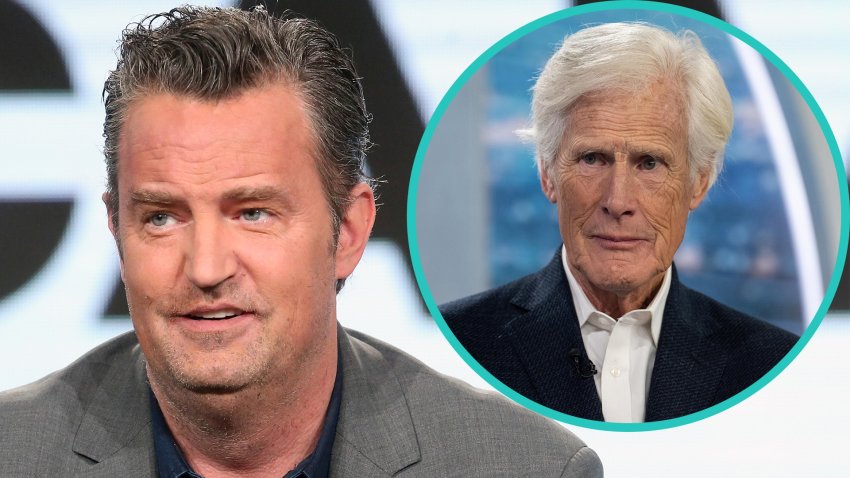U.S. Attorney Martin Estrada announced Thursday that charges had been filed against five people in connection with the death of Matthew Perry.
Originally appeared on E! Online
Authorities are releasing more details into Matthew Perry's final days after five people were charged in connection to his death.
The "Friends" alum was found dead in the hot tub of his Los Angeles home on Oct. 28, with his cause of death later determined to be "acute effects of ketamine" in drug and drowning-related accident.
However, it wasn’t the first time he experienced negative effects of the dissociative anesthetic. Perry had an "adverse medical reaction" to an at-home ketamine injection on Oct. 12, just 16 days before his death, prosecutors said in unsealed Department of Justice documents reviewed by E! News Aug. 16.
Prosecutors alleged defendant Dr. Salvador Plasencia injected the 54-year-old with "a large dose" of the controlled substance at request of the Perry's live-in assistant Kenneth Iwamasa, who has also been charged in the case, after the actor had already undergone ketamine infusion therapy from a doctor's office.
The DOJ said the at-home ketamine caused a "significant spike" to Perry's systolic blood pressure, making him "freeze up" so much that he "could not speak or move."
Prosecutors alleged that Plasencia told Iwamasa "something to the effect of: 'let’s not do that again'" following Perry's reaction to the additional dosage, though the assistant continued to purchase ketamine for at-home use in the following days.
Iwamasa has pleaded guilty to one count of conspiracy to distribute ketamine causing death, per authorities.
Meanwhile, Plasencia is facing one count of conspiracy to distribute ketamine, seven counts of distribution of ketamine and two counts of altering and falsifying documents or records related to the federal investigation. He has not publicly entered a plea.
Get a weekly recap of the latest San Francisco Bay Area housing news. Sign up for NBC Bay Area’s Housing Deconstructed newsletter.

In Iwamasa's plea agreement obtained by E! News Aug. 16, prosecutors alleged the 59-year-old injected Perry with ketamine obtained through unofficial channels around 8:30 a.m. on the day of his death. They accused Iwamasa of giving Perry two more doses in the span of six hours, before leaving him to run errands.
Iwamasa returned home to find Perry face down in the hot tub, per the filing.
In connection to Perry's death, Jasveen Sangha — a North Hollywood woman who authorities call “The Ketamine Queen" — has also been charged with one count of conspiracy to distribute ketamine, one count of maintaining a drug-involved premises, one count of possession with intent to distribute methamphetamine, one count of possession with intent to distribute ketamine and five counts of distribution of ketamine.
Per the DOJ, Erik Fleming — an individual who authorities allege sold ketamine to Iwamasa — and Dr. Mark Chavez — a San Diego-based physician who allegedly sold the drug to Plasencia — have both pleaded guilty to charges relating to Perry's death.
"We allege each of the defendants played a key role in his death by falsely prescribing, selling, or injecting the ketamine that caused Matthew Perry’s tragic death," Anne Milgram of the U.S. Drug Enforcement Administration said in an Aug. 15 statement. “Matthew Perry’s journey began with unscrupulous doctors who abused their position of trust because they saw him as a payday, to street dealers who gave him ketamine in unmarked vials."



